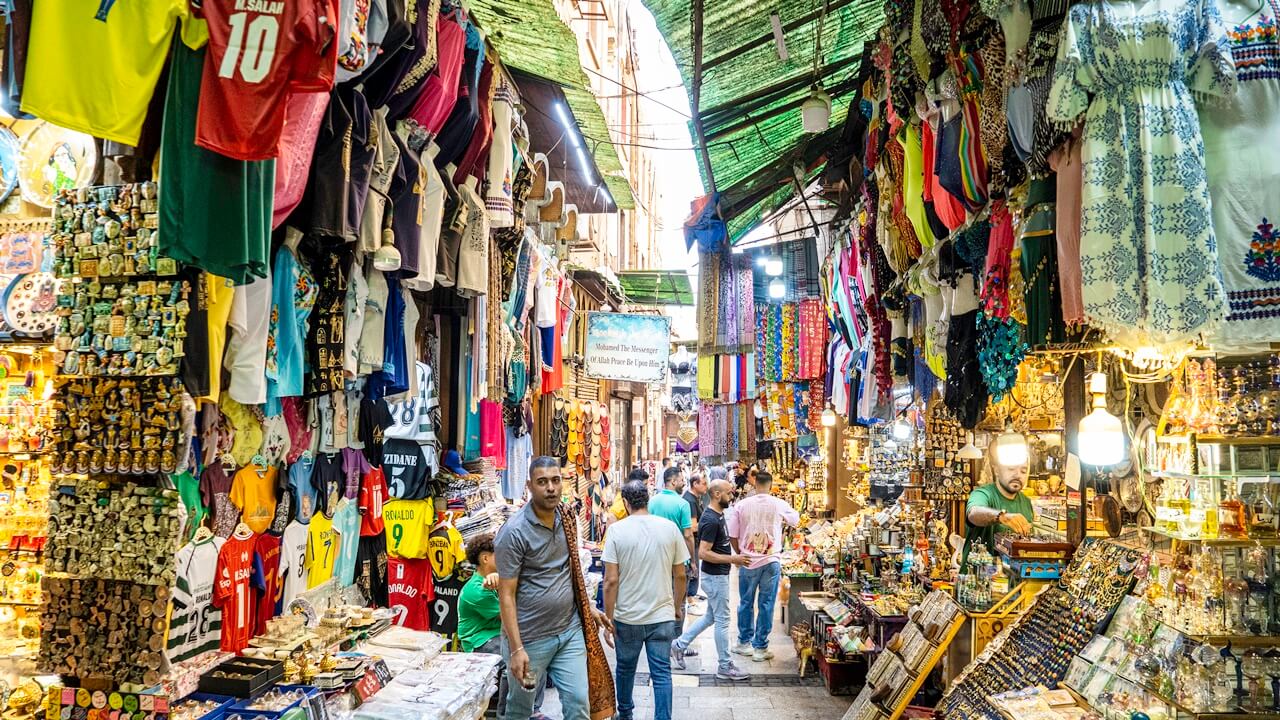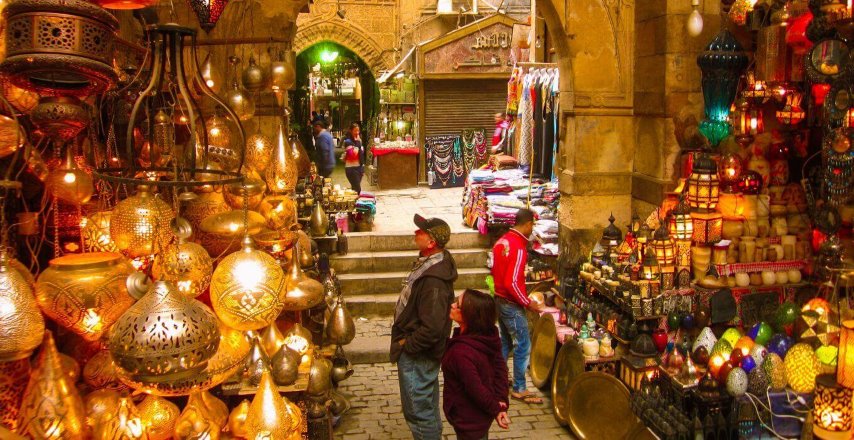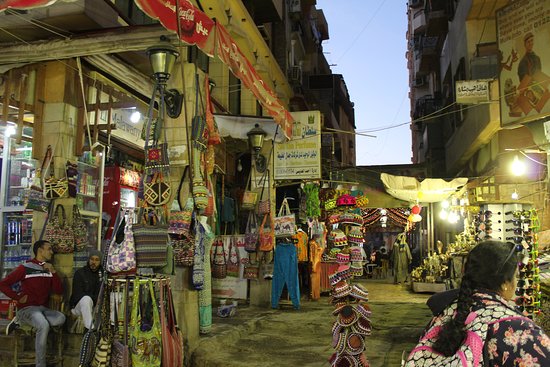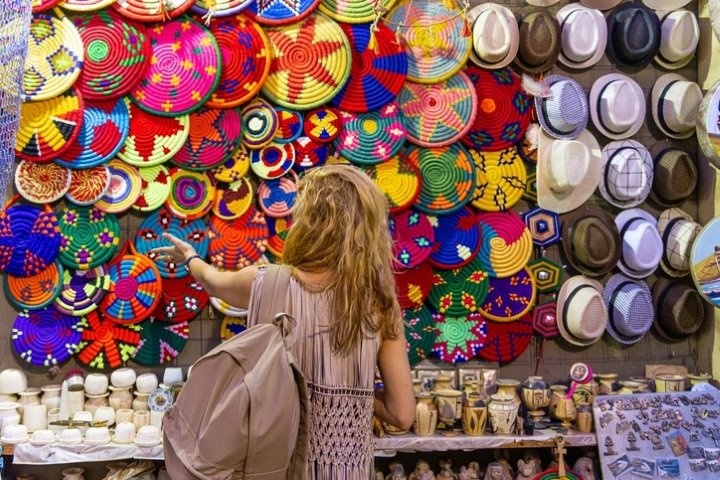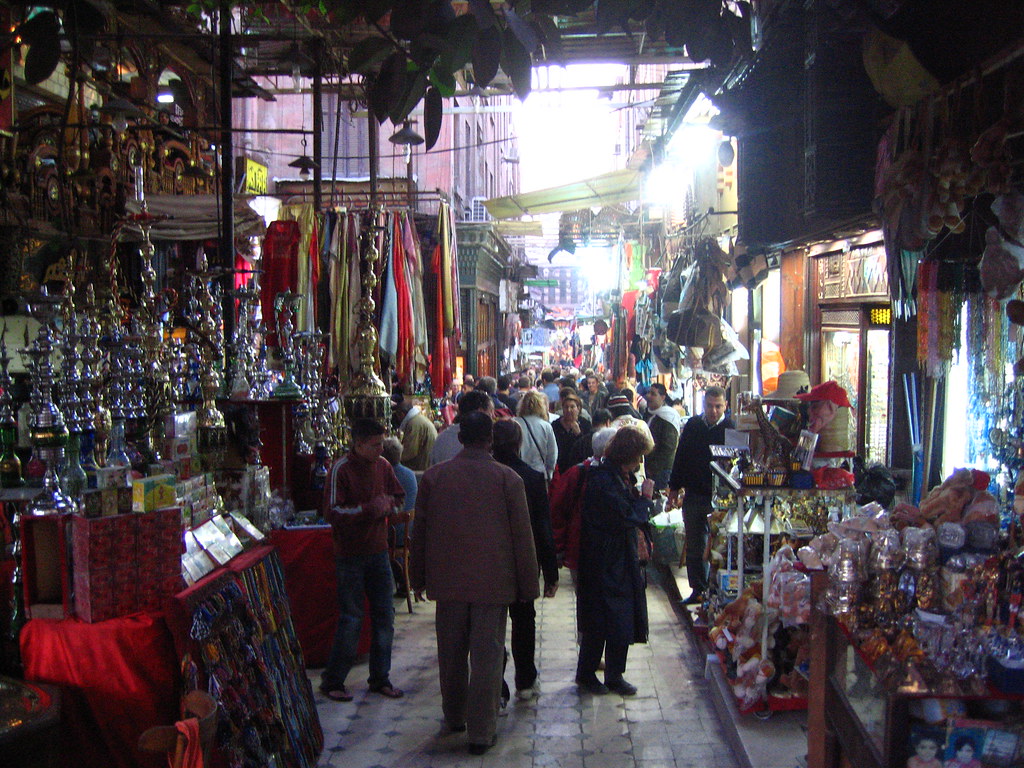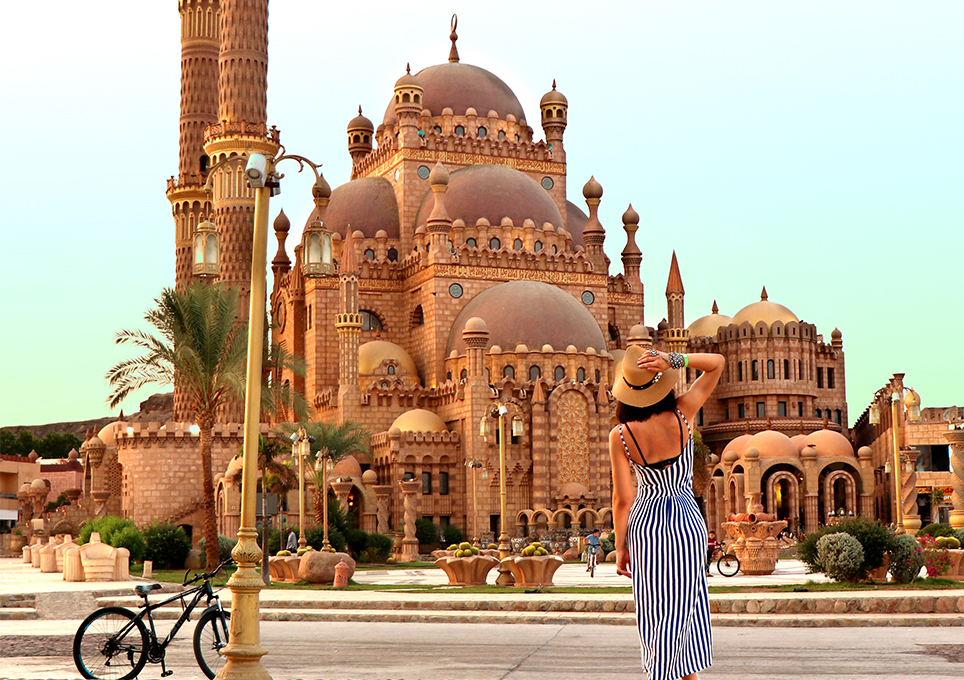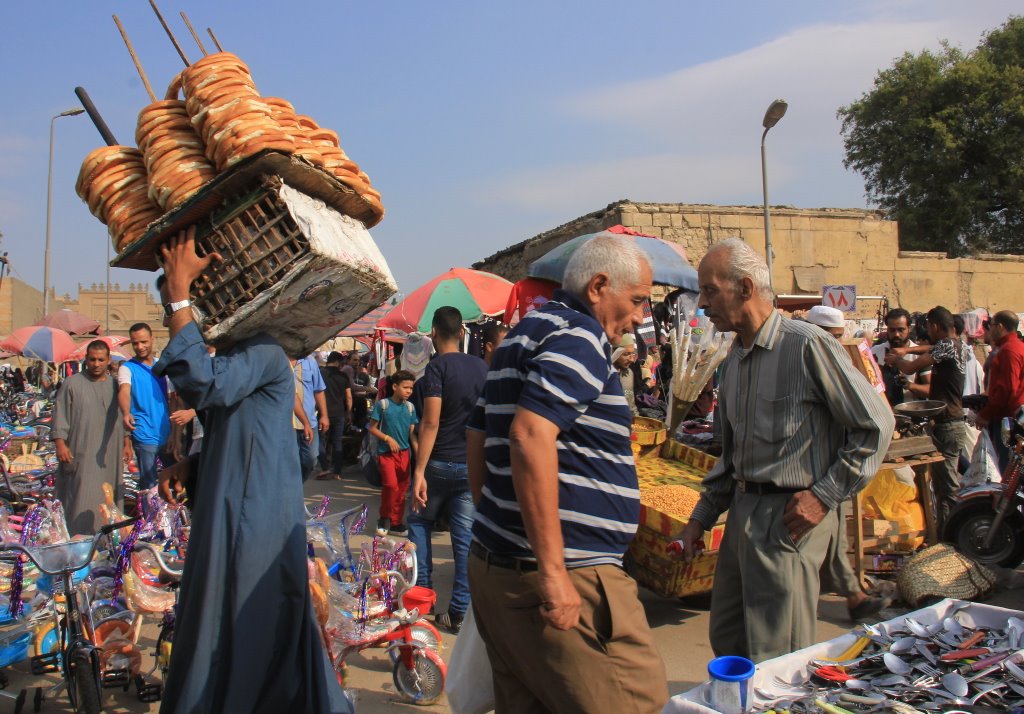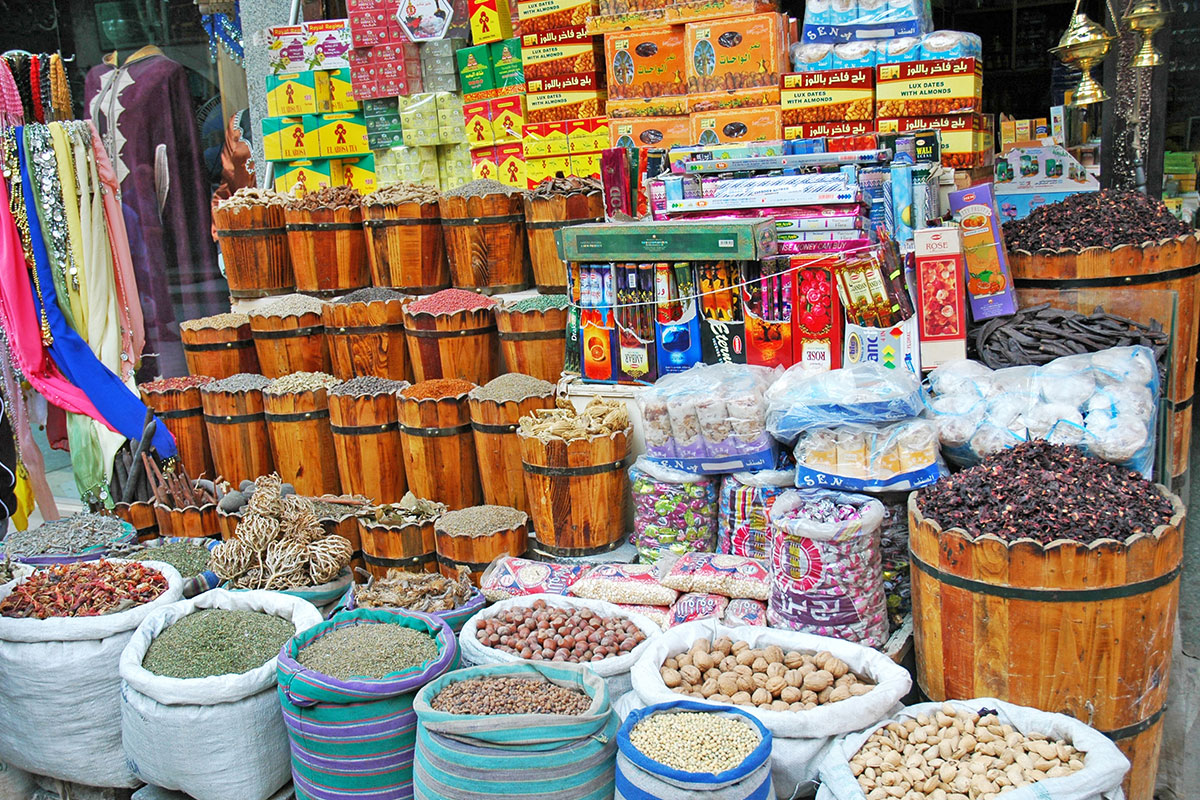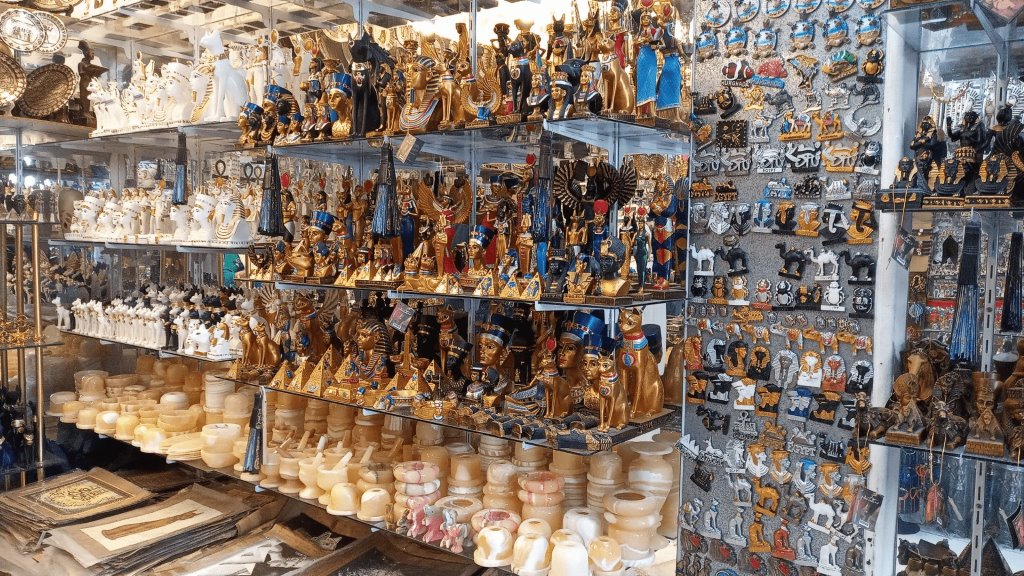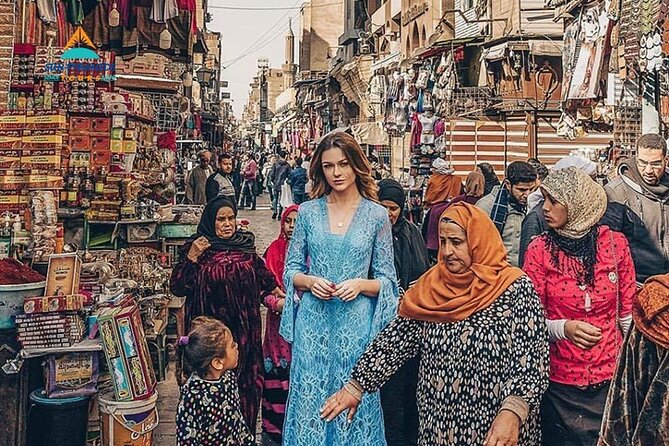Traveling through Egypt isn’t just about ancient temples and timeless pyramids. The markets—bustling, colorful, chaotic in the best possible way—are where you actually feel the heartbeat of the country. They’re loud, warm, full of personality, and every corner has a mix of scents and voices that somehow blend into a rhythm that stays with you long after you leave. If you want to understand everyday Egyptian life, the bazaars are the place to start.
Below is a full guide to Egypt’s top markets and bazaars, written with the long, rich, human-style travel template we set. Each section dives deep, giving you the atmosphere, what to expect, how to explore, and small traveler insights that most guides usually skip.
Khan El Khalili, Cairo
Few places in the Middle East have a reputation as strong as this one. Khan El Khalili is a maze where every alley twists into another, and each turn reveals something you didn’t realize you needed—brass lanterns throwing warm patterns on the walls, handmade jewelry catching the afternoon light, tiny traditional coffee shops filled with locals debating football or politics in loud, friendly tones.
Why This Market Stands Out
Part of what gives Khan El Khalili its charm is that it feels alive at all hours. During the day, traders call out gently, inviting you to look at leather bags, spices, perfumes, papyrus art, and silver rings. In the evenings, the whole place gets softer yet somehow more energetic, with the smell of grilled kebab drifting between the stalls.
Tips for Visiting
-
Go early if you hate crowds; go late if you enjoy atmosphere.
-
Bargaining isn’t optional here—it’s part of the social game.
-
Don’t rush; half the fun is simply wandering aimlessly.
Luxor Souq, Luxor
Luxor’s souq has a completely different feel—less chaotic than Cairo and more relaxed, but still buzzing with color. The moment you enter, you see rows of bright scarves hanging like flags, men sitting on plastic stools weaving baskets, and vendors selling carved stone statues inspired by the temples around the city.
What You’ll Find
Expect spices overflowing in big sacks, handwoven galabeyas, alabaster souvenirs, traditional musical instruments, and small artisan items you’ll seldom see in bigger cities. It’s also one of the best places to buy natural oils.
A Small Traveler Insight
If you walk just a bit further from the main tourist lanes, you find quieter streets where locals shop—fruit stands, clothing stores, and tiny bakeries selling fresh bread. If you want a more authentic slice of life, this side is worth exploring.
Aswan Souq, Aswan
Aswan has its own character—calm, warm, almost gentle compared to Cairo. The souq reflects that personality. You hear Nubian music, feel the hot desert breeze drifting through, and smell hibiscus tea being poured from metal kettles.
Why Travelers Love It
This bazaar is famous for Nubian crafts: colorful fabrics, hand-painted pottery, natural spices, and baskets woven from palm leaves. You also find spices here that are much fresher and more fragrant than what you’ll find elsewhere in Egypt.
Experience to Expect
Vendors are friendly but not pushy. Many will talk to you just to share stories, even if you don’t buy anything. You may even be offered tea simply for stopping to chat.
El Hussein District Markets, Cairo
This market spreads out around the historic mosque, and it has a slightly different energy from Khan El Khalili. The area is filled with families, street performers, and small restaurants that set out tables right on the pavement.
What Makes It Special
You can walk from vendors selling incense and perfumes straight into a street lined with handmade clothing. The neighborhood has a strong local vibe—kids running around, shopkeepers joking with each other, and elders sitting with prayer beads while watching life unfold.
Traveler Advice
Walking here in the evening gives you a very different feeling than during the day. The lighting softens everything, and the community atmosphere becomes stronger. Many travelers say they feel at ease here, even when it’s crowded.
Old Market (Sharm El Sheikh)
Although modern and tourist-oriented, Sharm’s Old Market is still worth visiting. It's designed to look traditional, with stone archways and lantern-style street lights, but the atmosphere is more resort-town than old bazaar.
Good For
-
Souvenirs
-
Leather sandals
-
Beachwear
-
Perfumes
-
Local cafés with strong, aromatic coffee
It’s especially enjoyable for evening strolls when temperatures drop and the market lights up.
Souq Al Gomaa, Cairo
This market is huge, messy, unpredictable, and absolutely full of life. You won’t find polished tourist items here—this is a local experience through and through.
What to Expect
You can stumble on everything from second-hand electronics to traditional furniture to random antiques that look like they belonged in someone’s attic for decades. It’s chaotic, but in a charming, real way.
For Adventurous Travelers
If you enjoy watching everyday life in motion, this place offers a unique look at Cairo. It’s loud, fast, and unfiltered.
Spice Markets Across Egypt
Spices are a huge part of Egyptian culinary identity, and the markets that specialize in them feel like walking into a painting. Pyramids of saffron, cumin, and hibiscus rise from large bowls, while the smell of dried mint fills the air.
Best Cities for Spice Shopping
-
Aswan
-
Luxor
-
Islamic Cairo
-
Port Said
Each city has its own blends, and old vendors sometimes share stories about how certain spices have been used for centuries.
Bazaars in Hurghada
Hurghada’s markets mix Egyptian tradition with Red Sea tourism. You get a blended experience—traditional items, beach gear, handmade souvenirs, and a lot of friendly sellers calling you to check out their goods.
Travel Tip
This is one of the easiest places for beginners to practice bargaining because vendors are used to tourists and keep the process fun rather than intense.
Visiting an Egyptian Bazaar: What You Should Know
1. Bargaining Is Part of the Culture
It’s not rude—it’s expected. Think of it as exchanging jokes and testing each other’s negotiation style.
2. Vendors Appreciate Respect
A simple smile or greeting in Arabic goes a long way.
3. Cash Works Better Than Cards
Markets often prefer cash, and you usually get better deals.
4. Take Your Time
These markets reward slow, curious travelers. Rushing means missing the small details that make each bazaar memorable.
Exploring Egypt’s markets isn’t just about buying souvenirs. It’s about stepping into the daily rhythm of the country—watching how people talk, interact, trade, laugh, and welcome outsiders. Each market, whether massive or hidden away, gives you a different piece of Egypt’s personality. And when you leave, you carry more than items in your bag—you carry stories, sounds, and moments that shape the memory of your trip.
